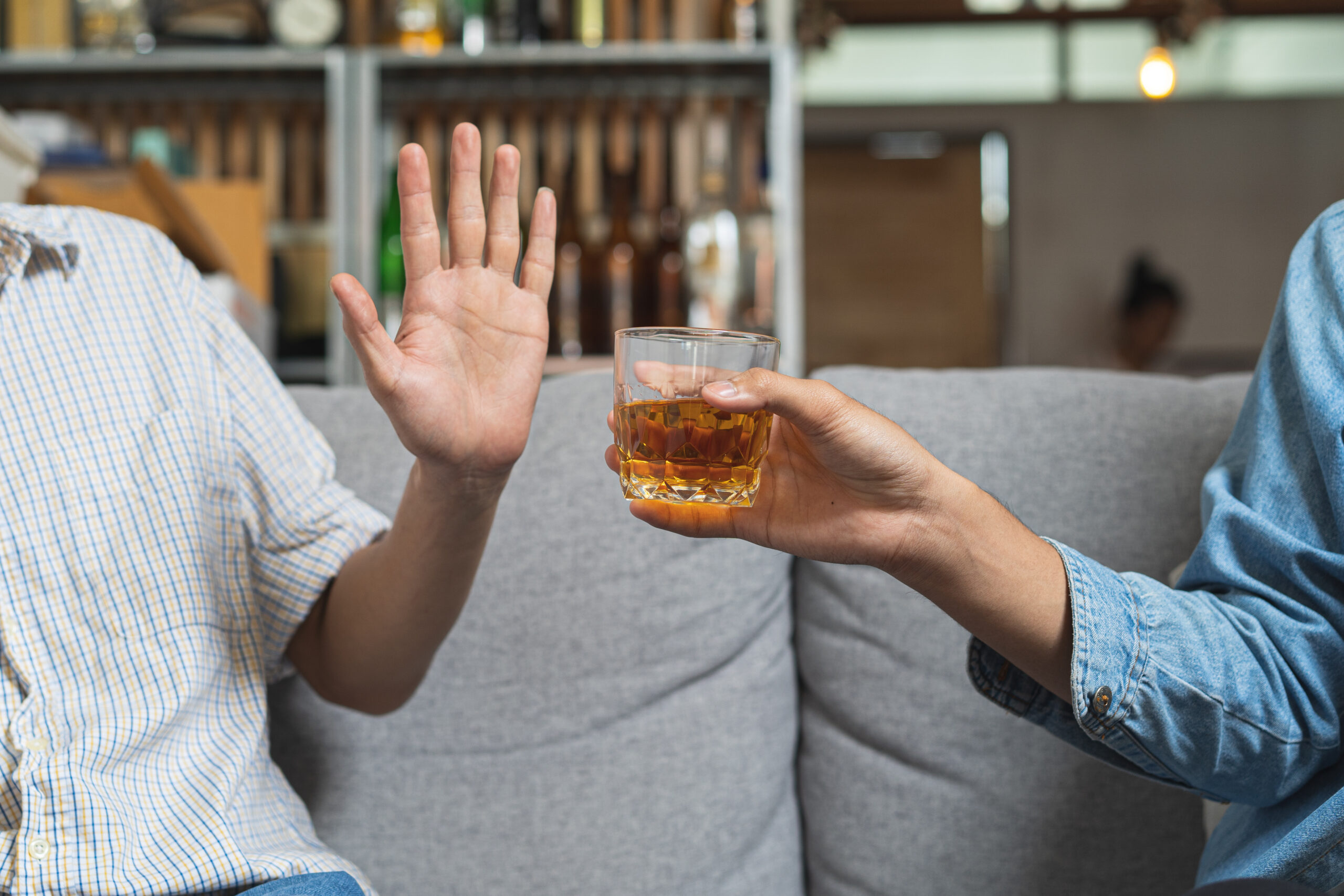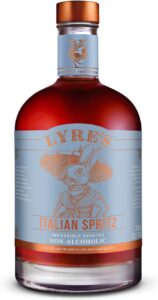Some of the links on this page are affiliate links, which means that Buzzy Kitchen earns commission from purchases made – at absolutely no extra cost to you. Thank you so much for supporting Buzzy Kitchen!
Dry January 2024 is a health and wellness movement that encourages people to literally quit drinking alcohol for the entire month of January – 31 days. The idea is to start the new year with a period of sobriety and to reap various health and lifestyle benefits, especially after the overindulging that most of us have done.
While the concept of taking a break from alcohol is not new, Alcohol Change UK has given it a massive boost over recent years. The movement has most definitely grown since its modern birth in 2013.
Interested? Let’s dive right in.
Dry January: The History
The origins of Dry January can be traced back to the United Kingdom. The campaign was launched by the charity Alcohol Change UK (formerly known as Alcohol Concern) in 2013. The goal was to raise awareness about the effects of alcohol on health and to encourage individuals to reassess their relationship with alcohol by taking a break from drinking.
The movement has since gained traction globally, with many people participating each year. And this year, you could be one of them.

What’s the Point?
First of all, at £5 a pint, quitting drinking for 31 days is going to save you a truck load of money. Even if you’re more of a can-of-beer-at-home kind of person, you’ll save whatever money you’d usually spend on that beer.
According to Priory Group, a month of not drinking means cutting out approximately 24 glasses of wine or 24 pints of beer. That equates to approximately £90 and £70 respectively. The more you drink on a regular basis, the more money you’ll save. In fact, 86% of people polled said that they saved money when participating in Dry January.
Joining Dry January isn’t just about the money, though. Why don’t we take a closer look into the science-backed reasons why quitting booze for 31 days is a really great idea?
Calorie/Weight Loss
Let’s stick with the 24 glasses of wine/beer per month as a basis. They would amount to roughly 3800 and 4300 calories respectively. You need a calorie deficit of 3500 to lose one pound of weight, so you’d essentially lose a pound or more by doing NOTHING but quitting drinking.
I initially put on a few pounds when I first quit drinking, because I stayed home on Friday nights and ordered takeout pizza instead. Once I realised that wasn’t healthy, I stopped ordering Friday night pizzas and lost quite a decent amount of weight – a little under one stone.
No Hangovers
I mean, this one is fairly obvious. When you don’t drink heavily, you don’t get a hangover. You can say goodbye to all those lost days spent lazing around and eating junk food to try and soak up whatever alcohol is left in your body. Imagine getting those days back and doing something productive or useful with them. You don’t need to imagine when you stop drinking for Dry January!

Improved Sleeping Patterns
You might reach for a glass or two of wine or beer to help you fall asleep at night, but the truth is alcohol messes your sleep pattern up in many more ways than you first may have thought. Research shows that alcohol use (and particularly abuse) messes with the natural fall asleep-wake up reflexes, makes you feel tired at the wrong times of day, and might even contribute to constant waking during the night. This is especially the case if you’ve got a heavy bladder.
According to Alcohol Change UK, 66% of people said they had more energy when they took part in Dry January, and 70% said they experienced better sleep.
Giving up alcohol for just 31 days could lead to improved sleep, more energy during the day, and an improved sleep-wake cycle. The latter will make you more productive, more alert, and happier overall.
Improved Liver Health
We all know that drinking lots of alcohol leads to liver issues, so it makes perfect sense that quitting drinking would lead to fewer liver issues. Even a short break of 31 days will give your liver the time to recover, recuperate, and function at peak efficiency.
Liver damage is not reversible, as such, but some symptoms, such as cirrhosis scarring, can be somewhat undone. A lot of the damage can be cured and repaired, even when as much as seventy percent of the organ is damaged, according to some studies.
The sooner you enter the recovery booze detox, the healthier your liver will be.
Dry January Benefits: Summary
Here’s the too-long, didn’t real (TLDR) aka summary of the benefits of joining Dry January and quitting the booze for 31 days. None of us have the time to mess around these days, right?
- Save money
- Consuming fewer calories
- Weight loss
- No hangovers
- Improved sleep
- Increased energy
- Happier
- More focus
- Improve liver health
- Raise money for a good cause (optional)
How to Participate in Dry January
The only thing you need to do to participate in Dry January is stop drinking.
Not all drinks, of course; you just need to leave out the alcoholic beverages from your diet for the entire month. No glasses of wine at the end of a long day, no Friday night drams of whisky, and absolutely no boozy beverages in the pub. It really is as simple as that.
There are plenty of non-alcoholic versions of alcoholic drinks these days, and plenty of non-alcoholic mocktails to try. If you’re interested in a few to get you started, why not try these:
- How to Make a Blue Frozen Margarita Mocktail UK
- Screwdriver Mocktail Recipe
- How to Make a Passion Fruit Martini Mocktail UK
You can raise and/or donate money to the Alcohol Change UK charity, but it’s not mandatory. There’s also the option of creating a sponsored event, enabling you to raise even more cash for the organization, so more people with alcohol issues can get help up and down the UK. Events that are publicized on social media help to get the Dry January message to more people, too.
Should You Participate in Dry January?
Are you dependent on alcohol? The honest answer, not the one you tell family and friends. (Absolutely no judgement at all!)
If you are dependent on alcohol, you should not participate in Dry January without first consulting with a medical professional. Quitting cold turkey when you have an addiction is dangerous and potentially deadly. You will likely experience unpleasant side effects of quitting, known as withdrawals. Your body wants more alcohol, because it has become dependent on it, so it goes into ‘tantrum mode’ when you don’t drink and feed your body’s need.
Symptoms of alcohol withdrawals include:
- Hand and body shaking or tremors
- Heightened anxiety
- Overwhelming feelings of stress
- Mounting depression
- Excessive sweating
- Insomnia
- Other disturbed sleep behaviours
- Hallucinations
- Other symptoms that are abnormal to you
Source: Dry January
Dry January Tools
There are a range of tools to help make 31 days of no-boozing much easier. Alongside a podcast there’s an app for both Apple and Android phones, plus a blog on the Alcohol Change UK website, with lots of useful tips and tricks.
Click here to find all official Dry January tools.
My Sober Story
As I write this, I have been sober for 7.5 years. Not a drop of alcohol has passed my lips, and I’m super proud of myself for that. If you had once told 21-year-old me that 30-something me would have gone stone cold sober, she would’ve laughed in your face. But, well, here we are.
I’m not going to shout QUIT DRINKING in your face every five minutes. Instead, I would like you to consider the idea of Dry January. You’ve already landed on this page and read this far, so you must be a little bit interested, right? Let me share my journey with you.
I was an angry drunk. If I wasn’t angry, I was a self-sabotaging maniac. It took many fights, many friend losses, and many, many cringe-inducing moments, but I finally realized that, maybe, it was time for me to try a sober way of life for a change.
At first, I wanted to do it just for a month or so. You know, to give my liver a rest and all that. Then, I wanted to try it for six months. And then, before I knew it, I had been sober for two years and was utterly shocked that I’d gotten that far. Once I’d gotten to that point, I was so proud of myself that I didn’t dare take a sip and let myself down.
I’ve lost weight, started walking on a daily basis, found three new hobbies, became more productive at work, slept better than I ever have done, and been happier overall. And I haven’t lost a single friend!
31 days turns into 7.5 years in the blink of an eye.
But you don’t need to give up the booze forever. It’s only 31 days. And the benefits of quitting the boozy beverages for just 30 days are extensive.
Alcohol Worries: Information & Resources
If you’re worried about how much or how often you’re drinking, there’s no shame in getting help. We’ve all been there with something, and we’ve all needed help to get out of it. There are plenty of statistics on the Alcohol Change UK website that’ll make you realise just how many people rely on a tipple or three to get them through the day. Life is hard, am I right?
Drink Aware offers Drinkchat, which is an online chat service operating between the hours of 9am and 2pm on Monday to Friday (weekdays only.) The advisors are fully trained in how to help, which direction to point you in, and will chat with you completely confidentially.
If you’d prefer to speak to someone over the phone, you can call Drink Aware’s Drinkline, which is open from 9am to 8pm on weekdays, and 11am to 4pm on the weekend. The number for Drinkline is 0300 123 1110.
The individual NHS websites for England, Wales, Scotland, and Northern Ireland have resources on alcohol issues and dependency.
You will also find a whole bunch of different resources on the Alcohol Change UK website right here.
I hope you successfully get through the 31 days of Dry January if you decide to participate. Don’t forget to let me know by voting in the poll below before you go. (Ha! That rhymed.) If you’d like one or two of my personal recommendations for non-alcoholic beverages that sit in the place of boozy ones, you’ll find them below.



